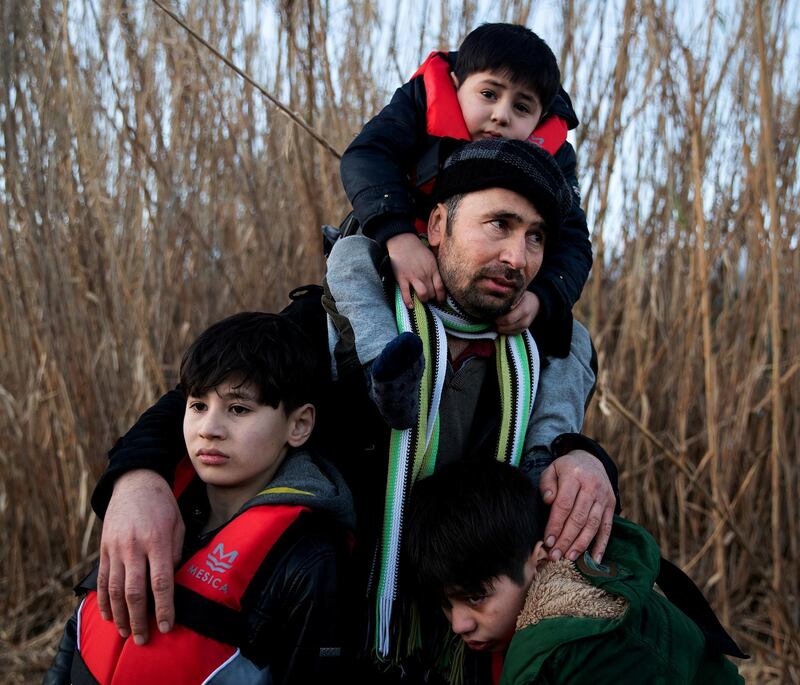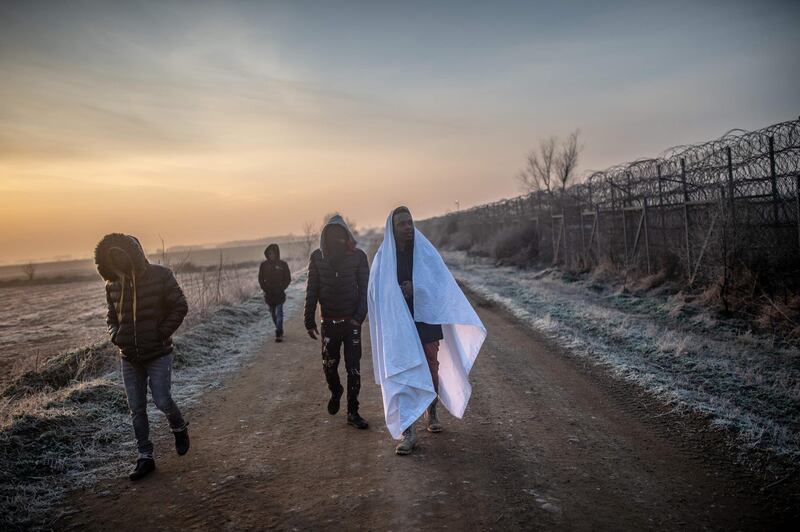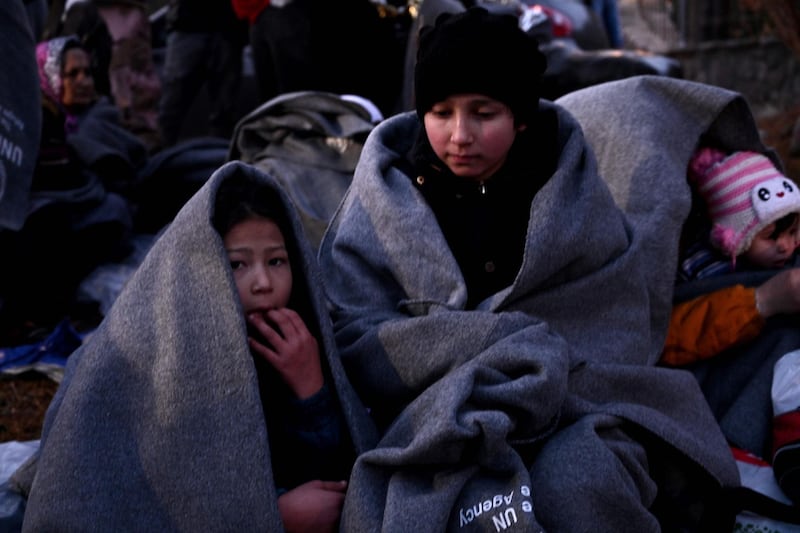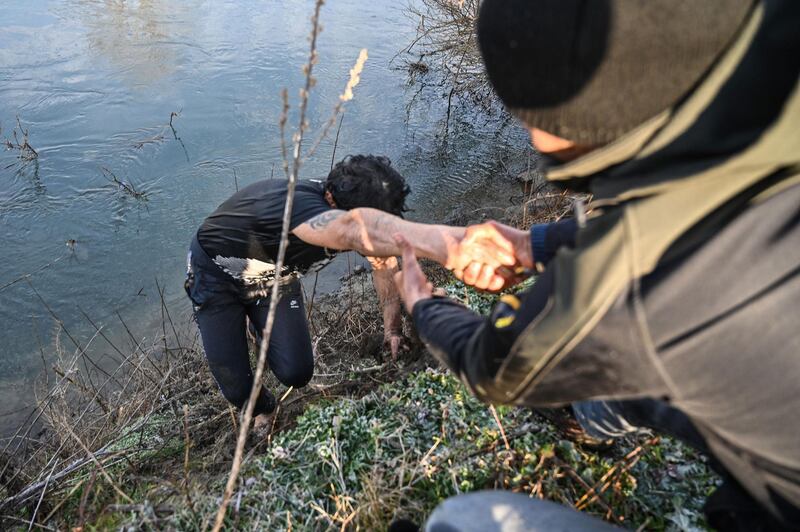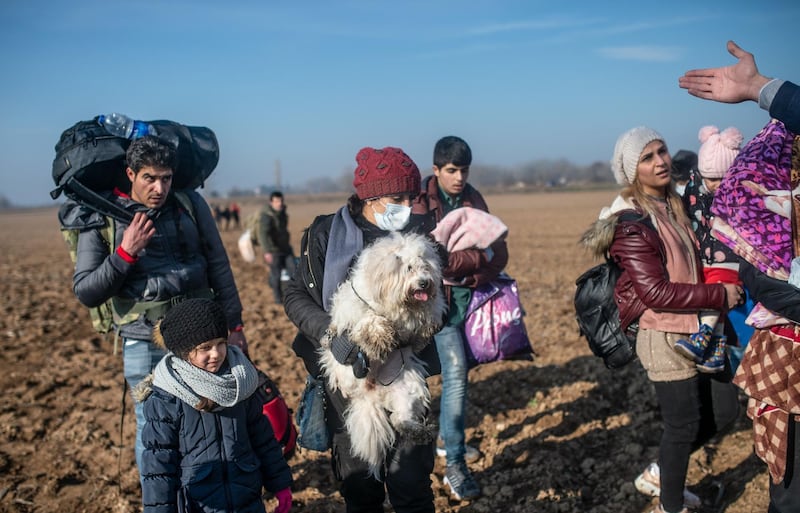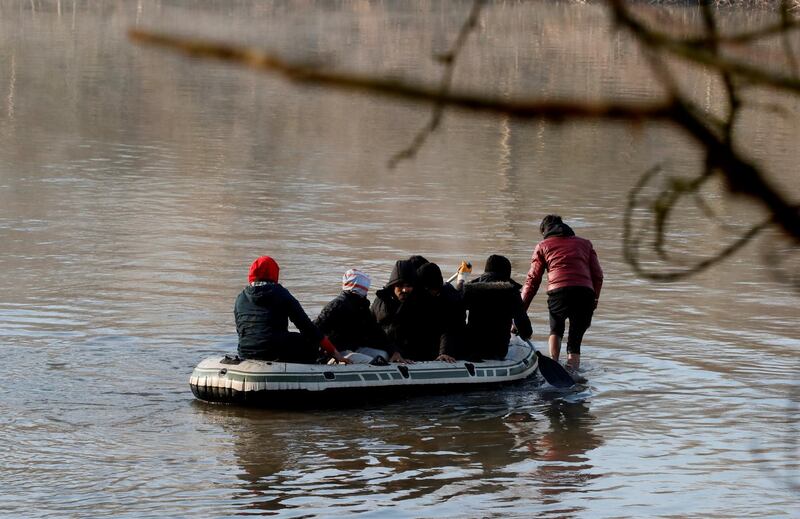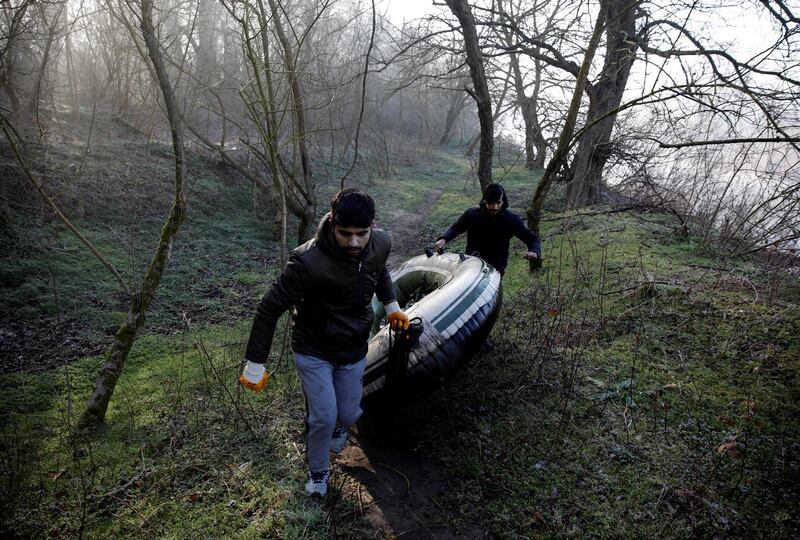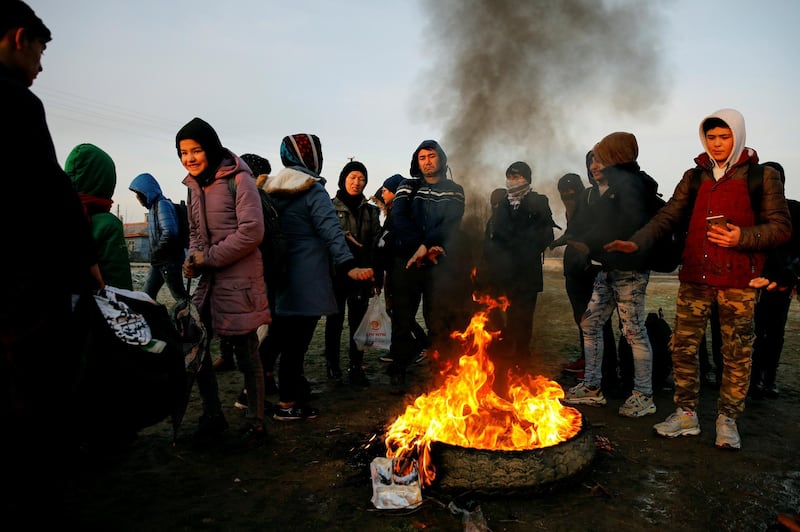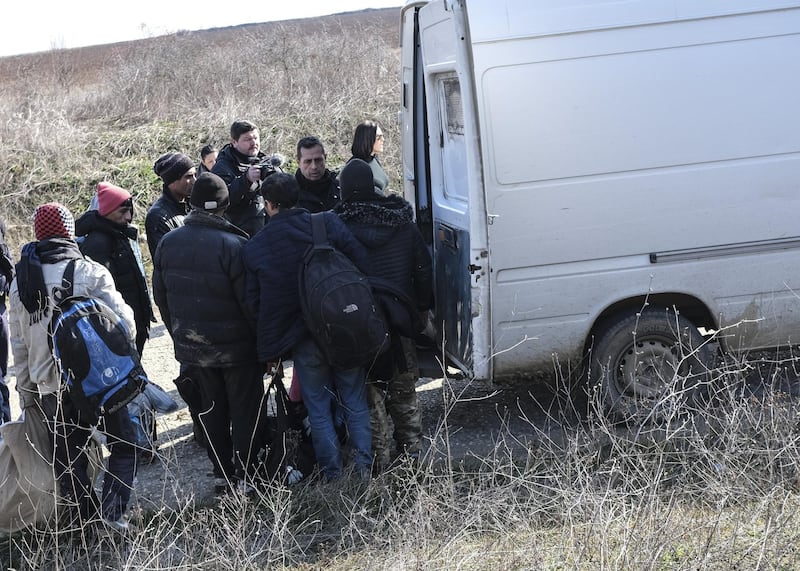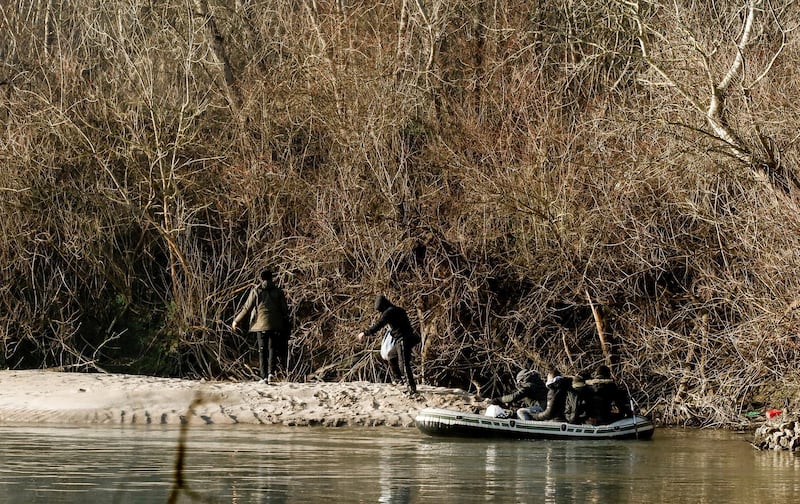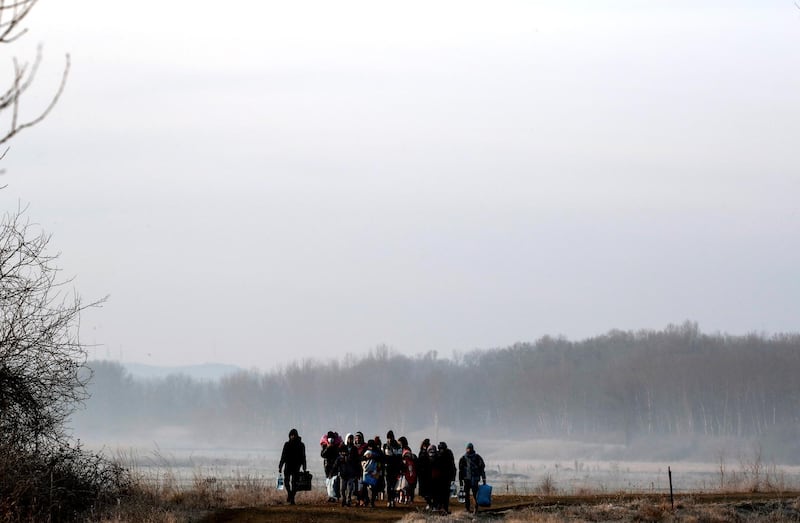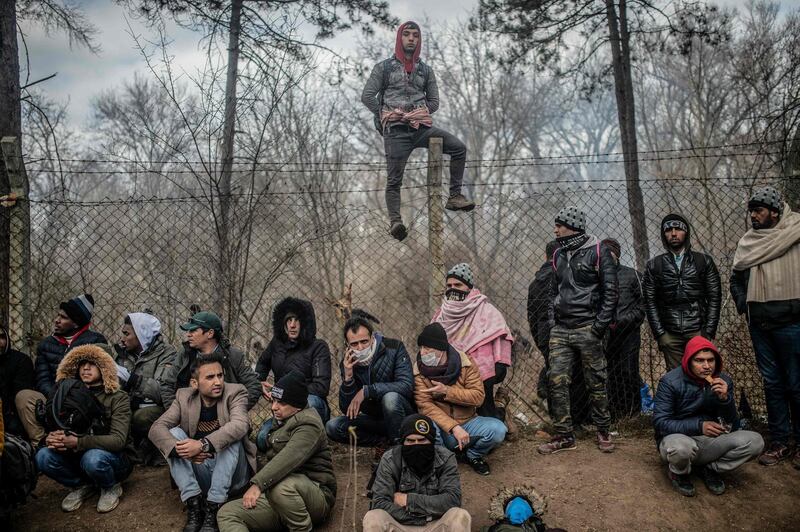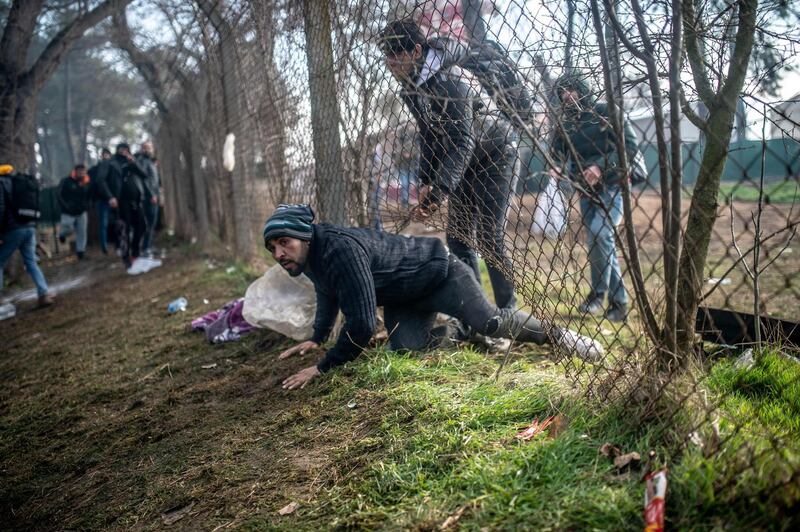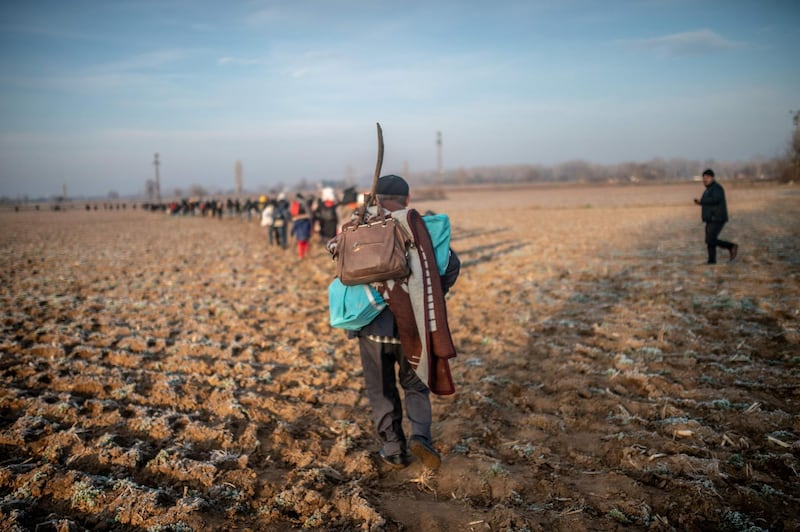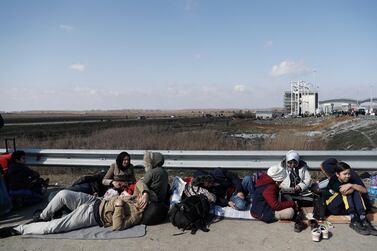The European Union has promised Greece 700 million euros and extra border guards to help tackle the continent’s most serious migration crisis since 2015, senior officials said on Tuesday.
In a united show of support for the embattled Greek government, the presidents of the top three EU institutions appeared with prime minister Kyriakos Mitsotakis to support his efforts to prevent thousands of people crossing its eastern borders.
Mr Mitsotakis claimed the threat to send “hundreds of thousands of people” from Turkey to Greece had been “neutralised” but said the EU needed to come up with a new way of tackling a problem that has dogged its leaders for five years.
The last crisis triggered a rise of populist anti-migration politicians across the continent and changed the political dynamic of European Union. The bloc has since failed agree on how countries should share the cost of the influx of migrants from Africa and the Middle East, frustrating countries like Greece and Italy who have seen the highest numbers of arrivals.
The EU chiefs warned that a failure to support Greece would trigger broader problems for the European Union as it seeks to bolster support for a bloc migration policy.
“Greek worries are our worries,” European Commission head Ursula von der Leyen told reporters at this small border town that has been the scene of clashes between Greek troops and migrants seeking to cross into Greece. “It’s not only the Greek border but also the European border.
“Those who seek to test European unity will be disappointed… We will hold the line and our unity will prevail,” she added.
Ms von der Leyen said another 100 EU border guards would be drafted in to help the 530 already in Greece along with two helicopters and an aircraft.
UN officials told The National that an estimated 20,000 migrants were waiting along the 200-kilometre land border with Turkey and at potential points to travel by boat to Greek islands, which have become the focus of a new wave of migration.
On Tuesday, Greek newpspaper The Indicator reported that from 1pm to 6pm that day, no more than 1,500 people were allowed to enter Greece illegally in the Evros area, which borders Turkey. The paper, citing government sources, said some 26,532 people have been prevented from entering Greece illegally and 218 people had been arrested since Saturday morning.
Groups of migrants and refugees from various nations gathered at the border after Turkey said last Thursday that it would no longer uphold a 2016 accord with the European Union to keep refugees on its territory in return of billions of euros in aid.
The European Council President Charles Michel called on Turkey to respect the deal and officials criticised the “false promises” that had seen thousands of desperate people to the border in the hope that they would be allowed to cross.
A wave of migrants is predicted as the Syrian regime, backed by Russian air power, continues its violent offensive to take the last rebel-held province of Idlib.
Mr Mitsotakis warned that the actions at the Greek border would have to be backed by concerted EU action to ensure that countries on the fringes of Europe would not face a higher cost than others.
“We need different types of policies… for effective burden sharing,” he said.
“We have not used the time wisely since the last migration crisis to assess the situation. It’s time we did it now.”
The prime minister and the senior EU officials travelled to the border on Tuesday at where the UN said some 2,000 to 3,000 people had gathered in recent days.
Numbers have fallen in no-man’s land across between Turkey and Greece at Kastanies with officials suspecting that many of those have sought less well-guarded spots to wade or use boats to cross the Evros river that acts as a border between the two countries.
Greek authorities said they thwarted an attempt by about 1,000 people overnight to make their way across the Evros wetland area, at the southern end of the border.
The UN said it was investigating reports that around 40 people had been fined or put in jail after being detained. Those stopped and held in Greece included an African couple with a six-month-old baby, said a UN official.
Greek authorities said that in the 24 hours between Monday and Tuesday morning, they had prevented a total of 5,183 people from entering Greece and arrested 45 people, mostly from Afghanistan, Pakistan, Morocco and Bangladesh.
The Greek government has sent police reinforcements to the area and set up extra checkpoints to stop migrants who had it across the border. Military helicopters thundered overhead during the visit of the European leaders.
Athens has courted further controversy by announcing it would suspend asylum applications for the rest of the month.
“It’s a fundamental right, should have access to fast and efficient asylum system,” Styliani Nanou, a spokesman for the UN refugee agency.
She said a shift in the last couple of days had seen migrants increasingly seeking to reach Greece by making the short but often perilous sea crossing to islands from the nearby Turkish coast.
Some 1,200 had sought to make the crossing on each of the last few days compared with about 110 a day earlier in the year.
A young boy died on Monday after the dinghy he was in capsized off the coast of the island of Lesbos. The other 47 people in the boat were rescued.
